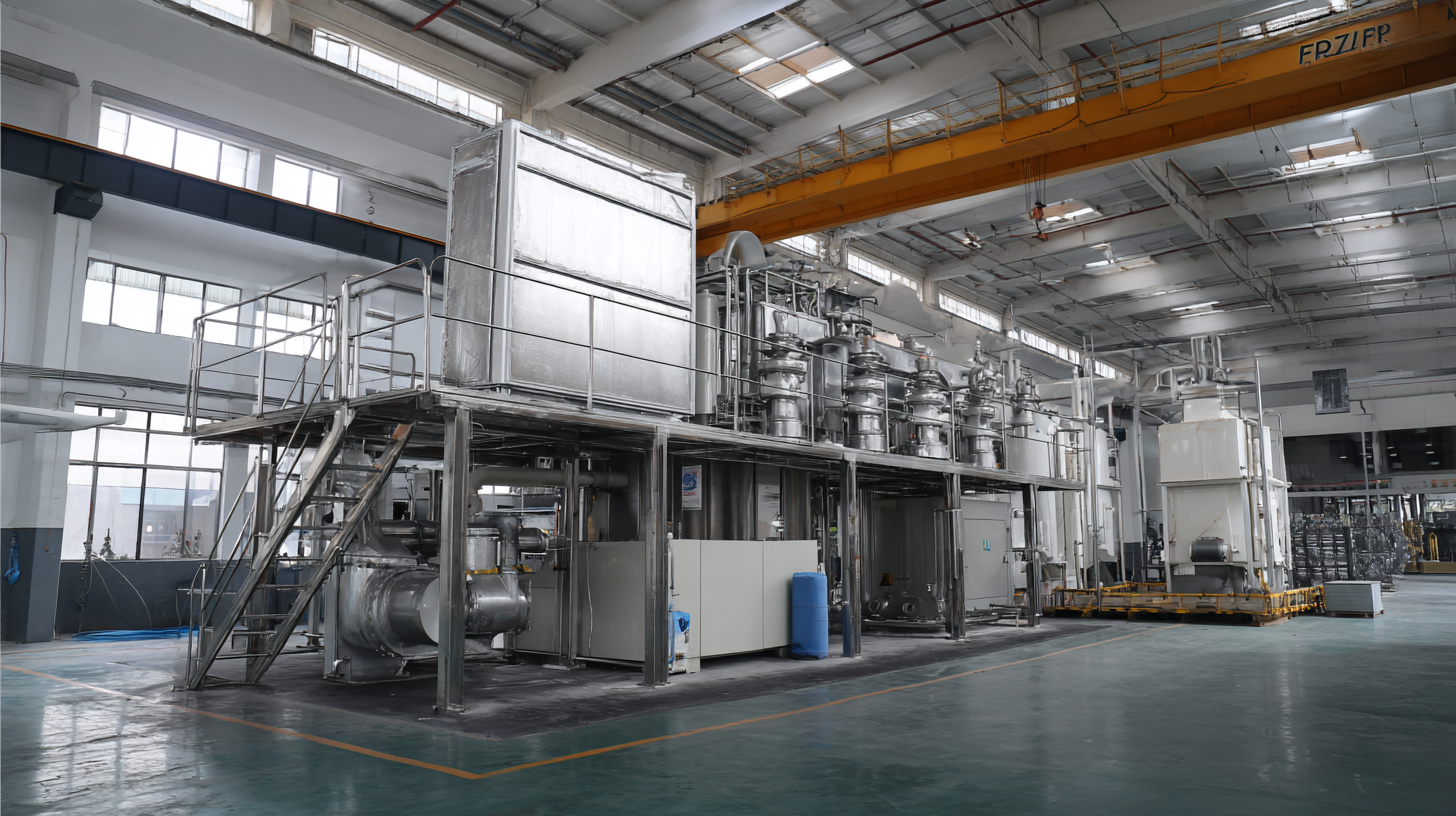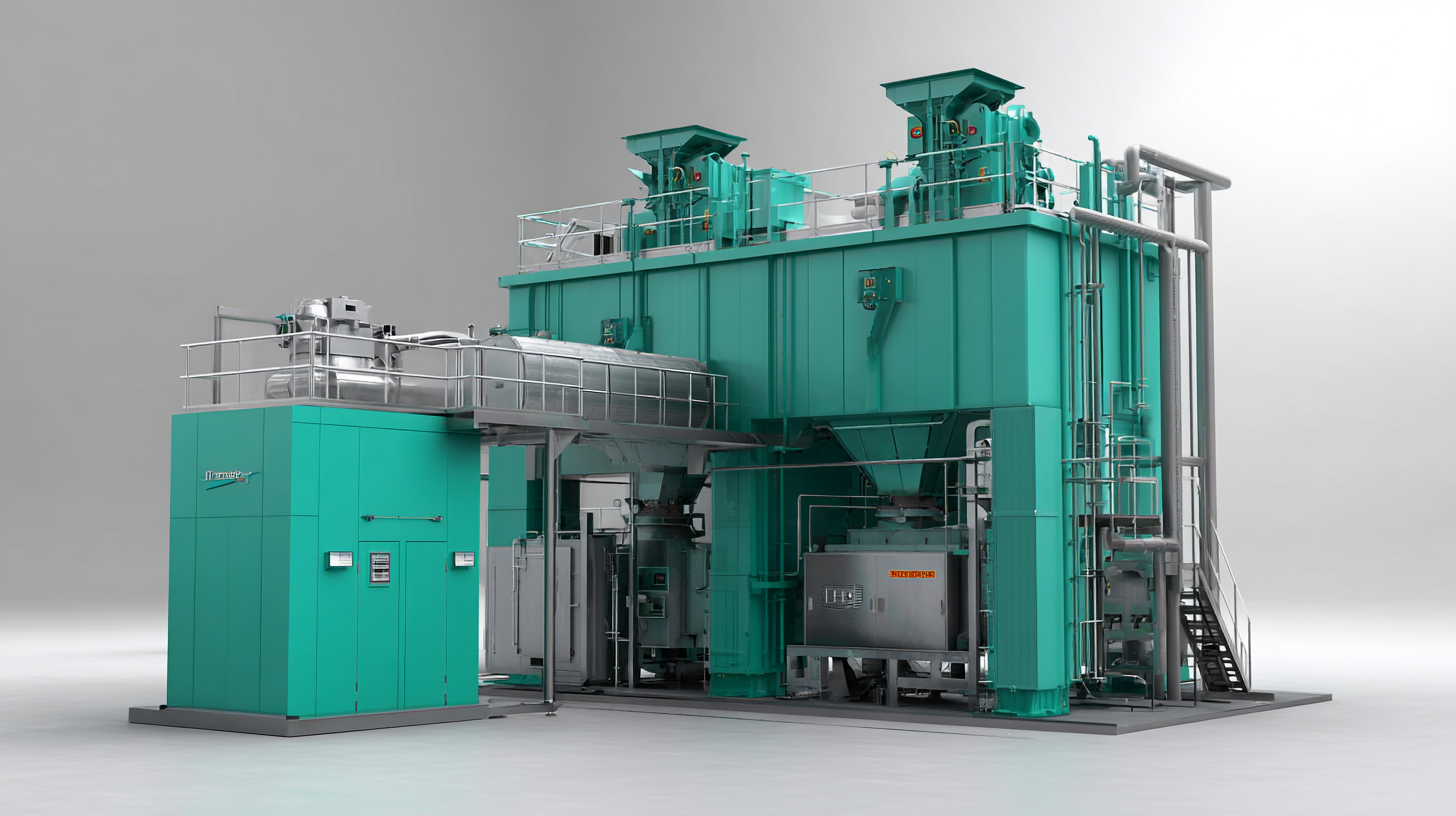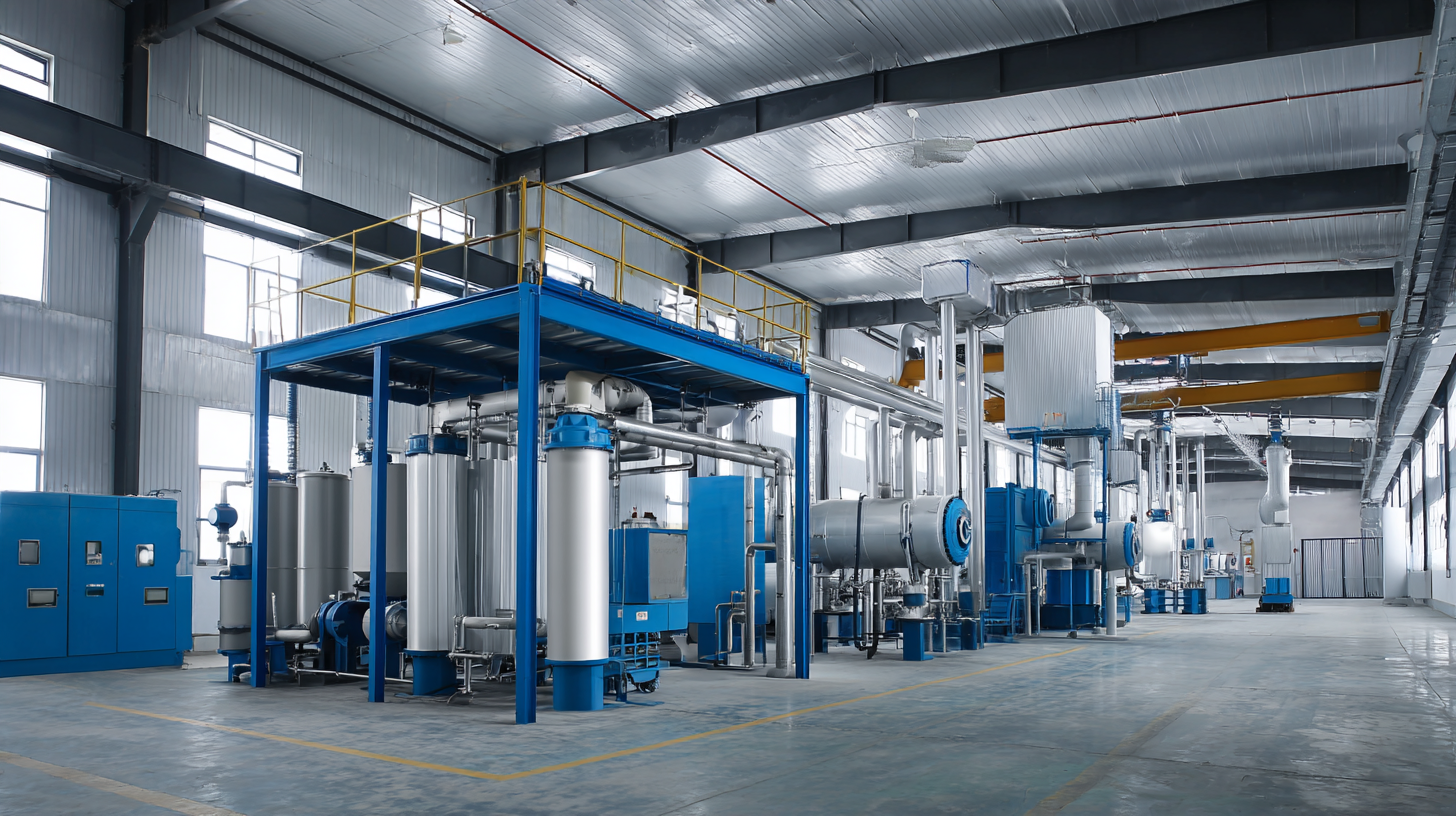




In the rapidly evolving landscape of manufacturing and processing industries, the quest for efficiency and quality has never been more critical. One of the pivotal solutions that has emerged is the Filter Dryer, a key component that enhances the drying and filtration processes simultaneously. As companies seek to streamline operations and reduce costs, partnering with China's leading providers of Filter Dryer technologies can unlock new levels of excellence. This blog aims to delve into the innovative features and benefits of these advanced Filter Dryers, exploring how strategic collaborations can drive productivity, improve product quality, and meet the diverse needs of various sectors. By understanding the intricacies of these solutions, businesses can make informed decisions that align with their operational goals and elevate their performance to new heights.

China has emerged as a formidable player in the global filter dryer market, significantly impacting various industries such as pharmaceuticals, food processing, and chemicals. As the demand for efficiency and sustainability rises, understanding the nuances of China's filter dryer solutions becomes crucial for companies looking to enhance their operational excellence. China's commitment to innovation, combined with its extensive manufacturing capabilities, positions it as a leader in providing high-quality filter dryers that meet international standards.
Tip: When sourcing filter dryer solutions from China, prioritize suppliers who have received international certifications. This not only ensures quality but also enhances credibility in your supply chain.
Moreover, as the global HVAC filters market is projected to grow significantly, China's filter dryers will likely play a pivotal role in meeting this demand. Companies can leverage these innovations to promote sustainability in their operations while benefiting from cost-effective solutions.
Tip: Consider integrating smart technology into your filter dryer systems. This can lead to better monitoring, increased efficiency, and reduced energy consumption, aligning with global sustainability goals.
In the filter dryer industry, understanding the key certifications for import and export is crucial for maintaining quality and compliance. The right certifications not only ensure that products meet international standards but also enhance the credibility of manufacturers. For companies looking to enter or expand in the Chinese market, certifications such as CE, ISO 9001, and FDA are instrumental in facilitating smoother trade operations. These credentials reflect a commitment to safety, efficiency, and quality, which are paramount in the processing sectors.
Tips for ensuring compliance with these certifications include conducting regular audits of manufacturing processes and keeping detailed records of production metrics. Engaging third-party testing facilities can also provide an additional layer of assurance regarding product quality. Furthermore, staying updated on the latest regulatory changes is essential, as these regulations can vary by region and can impact how products are marketed and sold.
Another important aspect of navigating the filter dryer industry is building strong partnerships with local firms that understand the regulatory landscape. Collaborating with experienced local agents can streamline the certification process and provide insights into market trends, thereby enhancing competitive advantage. Networking within industry associations can also yield valuable resources for information and support.
When considering the right filter dryer solutions for your needs, it is essential to evaluate various key factors to ensure efficiency and effectiveness. The filtration and drying equipment market is rapidly growing, driven by innovations and increasing demand for high-quality solutions. Understanding your specific application requirements and material characteristics is crucial in selecting the best option for your operations.

Tips:
- Assess the types of materials that will be processed. Different filter dryer technologies cater to varying material properties, which will directly influence performance and output quality.
- Look for models that offer energy-efficient solutions. Energy-saving options not only reduce operational costs but also minimize environmental impact, making them a smart choice for sustainable practices.
In addition to performance metrics, consider the compactness and operational ease of the equipment. Filter dryers that save space and enhance workflow efficiency can make a significant difference in productivity, especially in smaller facilities.
Tips:
- Evaluate the footprint of the filter dryer, ensuring it fits within your existing setup without compromising accessibility.
- Choose equipment with user-friendly interfaces to simplify operation and maintenance, ultimately leading to fewer downtime incidents and improved productivity.
In the rapidly evolving field of filtration and drying, collaborating with Chinese manufacturers has emerged as a viable strategy for achieving excellence in product development. According to a report by Global Market Insights, the filter dryer market is projected to grow at a CAGR of 6.5% from 2023 to 2030, highlighting the increasing demand for efficient filtration solutions across various industries.
 Effective collaboration with Chinese manufacturers can greatly enhance innovation, given their technological advancements and capacity for large-scale production.
Effective collaboration with Chinese manufacturers can greatly enhance innovation, given their technological advancements and capacity for large-scale production.
Developing a partnership requires understanding key strategies that foster successful collaboration. Companies are encouraged to engage in transparent communication, establish clear expectations, and invest time in understanding cultural nuances. According to the McKinsey Global Institute, businesses that adapt to local market conditions and prioritize relationship-building with overseas partners have a 30% higher success rate in projects. By leveraging these strategies, organizations can not only enhance their product offerings but also streamline their supply chains, ultimately leading to more robust solutions tailored to market needs.
Navigating the intricate regulatory landscape is essential for businesses engaged in the import and export of filter dryers, especially as international standards evolve. Recent developments in global trade reveal increasing scrutiny around environmental compliance, similar to what Ethiopian coffee farmers face with the EU's Deforestation Regulation. Companies must not only deliver high-quality Chinese filter dryer solutions but must also stay ahead of regulatory changes that can impact business operations.
According to a report by the International Trade Centre, around 30% of small to medium-sized enterprises (SMEs) in developing countries encounter significant challenges adapting to new trade regulations. These hurdles are often exacerbated by a lack of comprehensive support systems that can inform businesses about compliance requirements. For those navigating the complexities of filter dryer imports and exports, strategic partnerships with regulatory experts and local authorities in China can pave the way for smoother compliance and market entry.
The global trend toward sustainability is reshaping industries, and filter dryer manufacturers must align their practices with emerging environmental standards. Industry analysis predicts that compliance with such regulations could influence up to 40% of manufacturing costs by 2025, making proactive navigation essential for maintaining competitive advantage in the market. Engaging in these partnerships not only addresses regulatory challenges but also positions businesses as leaders in sustainability within the filter dryer sector.


